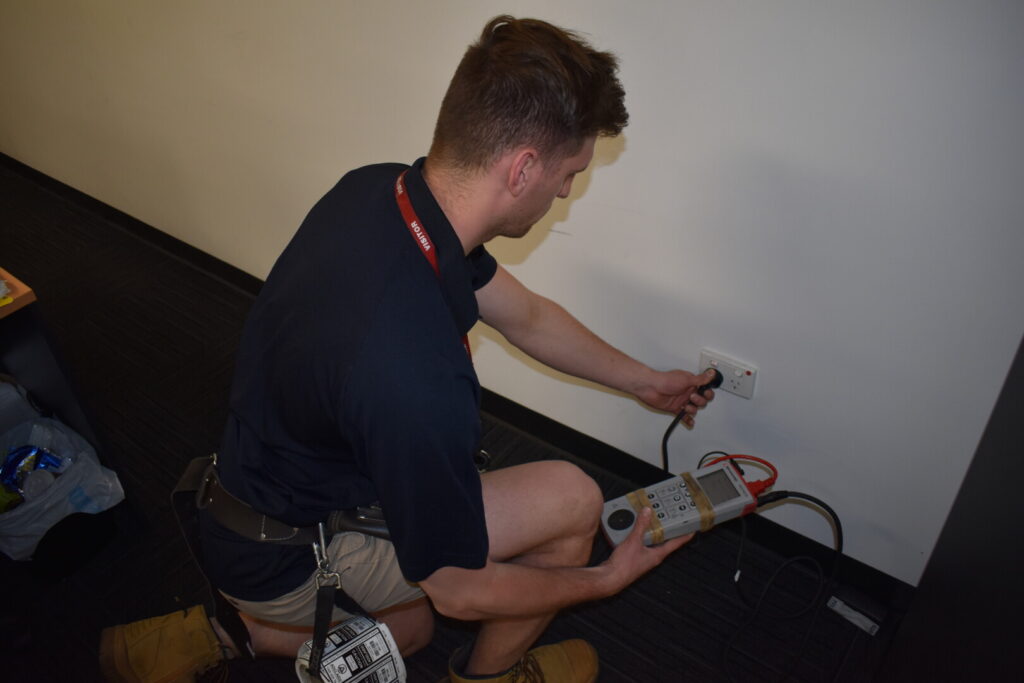Electricity powers workplaces, factories, and essential business equipment, but it can also present serious risks if not managed correctly. One of the most vital safety measures in any commercial electrical system is the Residual Current Device (RCD), commonly known as a safety switch. Regular RCD testing is crucial to ensure these devices function properly, protecting people and equipment from electrical hazards.
At Adelaide Test and Tag, we specialise in expert RCD testing across Adelaide. With electrical safety becoming increasingly important in 2025, our reliable RCD testing services help businesses maintain a safe workplace, safeguard equipment, and meet mandatory safety regulations. Read on to learn everything you need to know about RCD safety switch testing and why it’s essential for your business.
What is an RCD (Safety Switch)?
An RCD is a safety device installed in electrical systems to detect and immediately interrupt electrical faults. It continuously monitors the flow of electricity through live and neutral conductors and trips the circuit if it detects an imbalance. This imbalance usually indicates leakage current caused by faulty wiring, damaged appliances, or accidental contact with live electricity.
RCDs are designed to trip at leakage currents as low as 30 milliamps, cutting power within 300 milliseconds to prevent electric shocks, fires, and damage to electrical equipment.

Why is RCD Testing Important for Businesses?
While RCDs are engineered to provide safety, they can deteriorate over time due to wear, electrical surges, moisture, and dust. Faulty or malfunctioning RCDs risk giving a false sense of security, leaving staff and property exposed to danger.
Regular RCD testing confirms your safety switches operate correctly and trip within required timeframes. This helps businesses:
- Prevent electrical accidents and injuries
- Avoid costly downtime due to electrical faults
- Comply with Australian electrical safety regulations
- Maintain insurance validity by demonstrating safety diligence
How Does RCD Testing Work?
RCD testing involves simulating a fault by injecting a small leakage current to check if the device trips as required. Key measures during testing include:
- Trip Time: How quickly the RCD cuts power, usually under 300 milliseconds for a 30mA device.
- Trip Current: The current level that causes the device to trip, which should be close to its rated sensitivity.
Our licensed electricians use specialised RCD testers to perform these checks efficiently, minimising disruption to your operations.
Types of RCDs Commonly Used in Businesses
- Standard RCDs: Typical in commercial settings to protect staff from electric shock.
- Selective RCDs: Used in industrial environments, they have a short delay to prevent nuisance tripping while still providing protection.
- Socket-Outlet RCDs: Installed on specific outlets for high-risk equipment.
- Portable RCDs: Used for temporary power protection on construction sites or for portable machinery.
No matter the type, regular testing is vital to ensure reliable protection.
Legal Requirements and Industry Standards
In Australia, electrical safety standards such as AS/NZS 3760:2022 require that RCDs be tested:
require that RCDs be tested:
- Upon installation,
- After any repairs or modifications,
- At regular intervals during routine safety inspections.
For commercial and industrial sites, RCDs typically require testing every 6 months depending on site conditions and usage.
Benefits of Regular RCD Testing
- Life-Saving Protection: Guarantees devices will operate correctly in an emergency.
- Fire Prevention: Reduces the risk of electrical fires by detecting faults early.
- Equipment Protection: Prevents damage from electrical surges and leakage currents.
- Regulatory Compliance: Meets workplace health and safety laws.
- Insurance Compliance: Many insurers require documented safety testing.
- Cost Savings: Early fault detection helps avoid expensive repairs and downtime.
Signs Your RCD Needs Immediate Attention
- Frequent tripping with no clear cause
- Test button fails to trip the device
- Device won’t reset properly
- Visible damage or corrosion
- Users experience shocks or tingling from equipment
If you notice any of these, contact Adelaide Test and Tag for prompt, professional RCD testing and maintenance.
What Could Happen if RCDs Aren’t Tested?
- Devices may fail silently and not trip during faults,
- Delays in power cut-off can cause serious injury or equipment damage,
- Non-compliance can result in fines and legal liability,
- Electrical faults may disrupt business operations, causing costly downtime.
Our Professional RCD Testing Process
At Adelaide Test and Tag, our licensed electricians follow a thorough, step-by-step testing process:
- Initial Inspection: Verify RCD condition and installation.
- Push-Button Test: Confirm manual trip function.
- Instrumental Testing: Measure trip time and fault response.
- Record Keeping: Document results for compliance.
- Tagging & Reporting: Attach test tags and provide detailed reports.
- Recommendations: Advise on repairs or replacements as needed.
This rigorous approach ensures your business meets safety standards and operates confidently.
Why Choose Adelaide Test and Tag for Your RCD Testing?
We combine extensive industry experience with state-of-the-art testing equipment to provide comprehensive RCD testing services across Adelaide. Our licensed electricians adhere to all safety protocols and national standards, delivering:
- Accurate RCD trip time and current measurements
- Detailed reporting and compliance documentation
- Clear advice on any necessary repairs or upgrades
- Flexible scheduling and fast turnaround
- Competitive pricing tailored to business needs
Ensure your workplace is safe, compliant, and protected with expert RCD testing from Adelaide Test and Tag.


